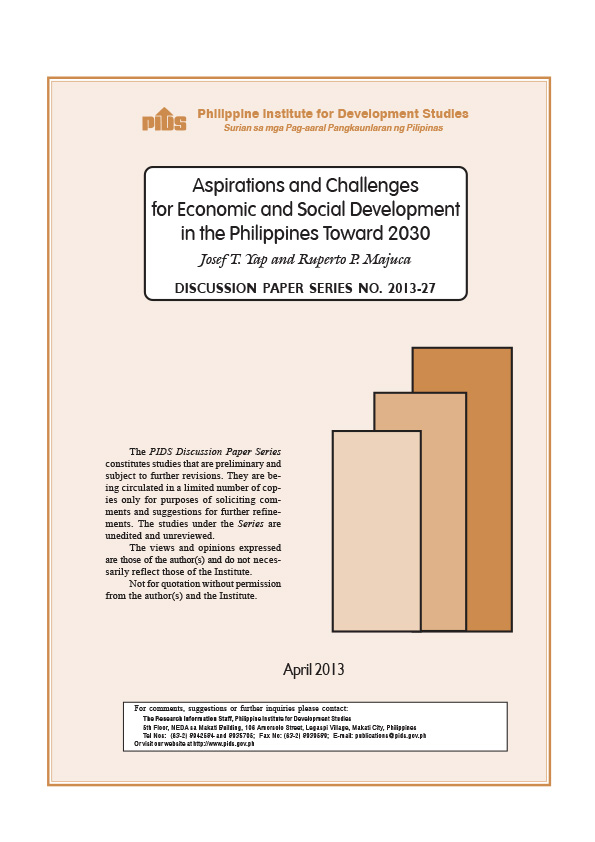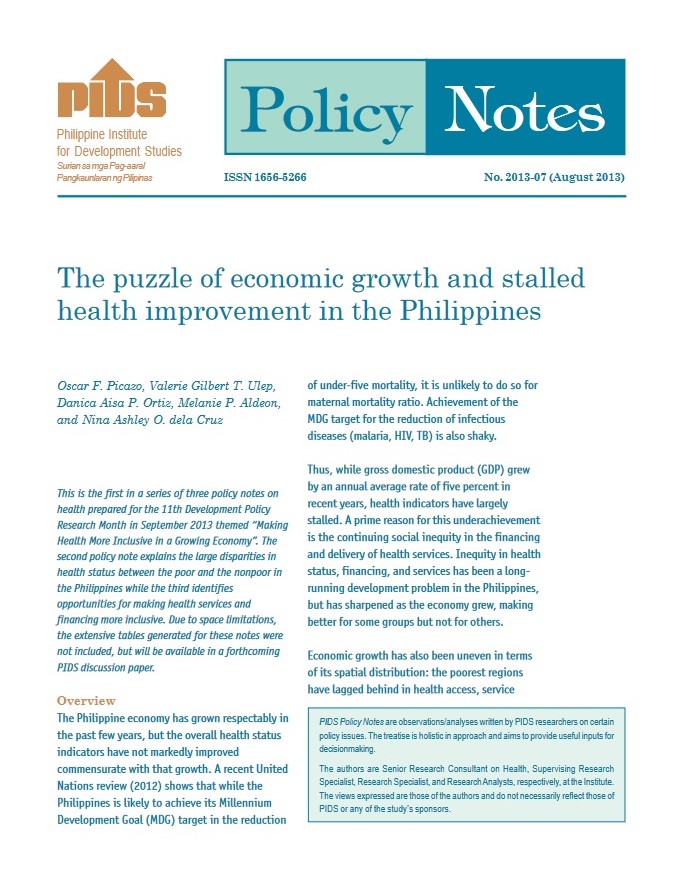Et ees a puzzlement,” said actor Yul Brynner in the Broadway muscial, "The King and I." He played the role of King Mongkut of Siam in the early 1860s,
That line sums up the study "The Puzzle of Economic Growth and Stalled Health Improvement.” This is buttreessed by two other Philippine Institute for Development Studies papers: "Explaining the Large Disparities in Health” and "Making Health Financing and Services More Inclusive.”
Ang mabuting pangagatawan ay maiging kayamanan, says a Pilipino proverb. "Health is wealth.”
The economy capped its strongest two years of growth in 2013 —- the fastest two-year pace since 1955, Bloomberg reports.. "A recovery in advanced economies may help President Aquino bolster growth to as much as 8.5 percent by 2016. "
"But overall health status indicators have not markedly improved commensurate with that growth,. PIDS notes. Preventable ailments
from heart disease to TB, diabetes and diearrhea, inflicted the heaviest toll in Cebu, City Health Department’s Dr Daisy Villa said Thursday.
Deaths for under age 5 infants, out of every 1,000 live births was 29. That's way behind Malaysia’s 6, notes the latest "UN Human Development Report.” Sure, immunization coverage here, for one year olds, was a robust 88 percent —- but still behind Vietnam’s 98.
Equity is now "a global benchmark,” especially in health. But the gap between the richest and the poorest households, in health financing, access to services, and health status, has not markedly improved...( We must unlock this) puzzle of economic growth and health inequity.”
Economic growth, international competitiveness, and financial stability fall short. The goal should be "human development in a sustainable environment.”
Persistent gaps between elites and poor, within an improving economy, breed political instability and disenchantment among the neediest. It spawns "crime and other social pathologies.”
The lynchpin is social participation. President Aquino "created a club of the 30 poorest provinces. (They) that will receive increased funding between now and the end of his term in 2016,” Inquirer reports.
PIDS pinpoints six factors spin off into "large disparities in health status.” First is widespread poverty. Second is "severe underinvestment in health since the 1970s, while fertility rates ebbed far too slowly.”
Insurgency disrupted access to health care. Growth of the economy has not created jobs. A country fractured into 7,120 islands at low tide, "impinges adversely on the delivery of health resources.”
Frequent disasters and environmental risks, aggravated by climate change, embed health inequity. Think supertyphoon Yolanda and the Bohol earthquake. All too often, officials scramble to resolve "short-term, immediate, and emergency concerns of governing and management.”
What can be done? "Many opportunities exist to make growth more inclusive by improved health financing, regulation and planning, and service delivery.”
Economic growth makes it possible for health budgets, to increase. (Local governments can break out of "basketball syndromes) ”to squander Internal Revenue Allotments. And quit the political squabbles, as in Mayor Mike Rama versus Osmeña underlings in the council.
Aquino’s fledgling Universal Health Care program focuses on the poorest of the poor. There are promising health market innovations that can significantly improve supply-side response.
Such reforms need political spine, not spin. Only then can can we say "Et ees (no longer) a puzzlement.”
Related Posts
Publications
Video Highlights
[No related items]
Infographics
[No related items]



